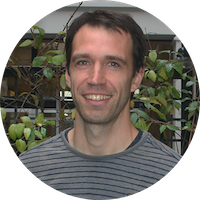By Alexander Vuylsteke for Enlivening Edge Magazine
Note from Enlivening Edge Magazine: This update about a success offers a nice contrast to the sad update about Zappos we will publish soon.
Yools is a digital agency for SMEs that I ran for 9 years. The company was founded in 2012 with a low-price strategy to enter a highly competitive market. Although we were able to gain some market share, in 2016 the company was still not profitable and the team was burning out. Something had to be done.
Inspired by examples such as Netflix, Ricardo Semler and those in Reinventing Organizations, we transformed the internal organization of Yools.
Our new organization was centered around three principles:
- Purpose over profit. Purpose is the end goal, profit the means. We aim to maximize both, but we don’t sacrifice our purpose for more profit. We rely more on purpose than on profit as source of motivation and inspiration.
- Trust by default. We believe that most people are capable and trustworthy—certainly those that we hire. We don’t have extensive reporting or control mechanisms to prevent exceptional errors or misbehavior. We do have systems for transparency and accountability.
- Autonomy & responsibility. Team members have far-reaching autonomy in how they organize their work, optimize internal processes, and contribute to the growth of the company. Everyone has the authority to make their own decisions, receives guidance where needed, and takes responsibility for making it work.
At the invitation of Enlivening Edge Magazine, I share my reflections on the journey since we launched the changes in 2016. Here is the original article on us from 2016.
Team Clients Company
We observed that a stronger team led to happier clients, which led to a healthier company.
The changes in the internal organization immediately boosted team engagement. The team had always been intrinsically motivated but limited by the organizational constraints that were in place. Once these were removed, the team felt liberated and made an extraordinary effort to make it work despite major initial challenges.
“Having the freedom to innovate virtually limitlessly and thus having an impact on my colleagues’ day-to-day experience not only helped me evolve as a webdesigner, but also as a person.
It’s difficult to imagine a workspace having a major, positive influence on your personal life, but Yools has made this possible. Thanks to this, I feel more involved and motivated to come to work and help our clients and other team members.”– Yannick, Webdesigner at Yools
The team was on fire and the clients felt it. Enabled by the shift in organizational approach, we soon also adjusted our business strategy and prioritized a great customer experience instead of low prices.
The first half of this experience was already in place due to our longstanding commitment to operational excellence, which has resulted in a consistently smooth process free of delays or disruptions. We were now adding the second half through the efforts of our team members, who are deeply engaged when interacting with clients and go above and beyond to help them, creating a genuine human connection.
By now, over 5 years later, the new organizational model and business strategy seems to have worked out well:
- Higher revenues: client satisfaction scores increasing from 7,6/10 to 9,8/10, more repeat business, expansion of our offering, doubling in customer lifetime value
- Lower expenses: dramatically more efficient teamwork and communication, ability to deliver same revenue with much less resources
- Healthy profit margins and much less pressure on both team and management
How the model evolved over the years
The original principles we defined in 2016 have not changed. Because they are ingrained in daily practices and culture, we don’t even have to talk about them all that much anymore. However, the specific practices, methods and tools did evolve. An initial phase of intensive experimentation and learning was followed by a permanent habit of trimming down all procedures to the essential minimum and renewing them when needed.
One example practice that got trimmed down was our bottom-up planning process. There was nothing wrong with the process: letting teams plan their operational work among themselves (1) and verifying that it will result in healthy team performance on an aggregate level (2). In a way, it was both bottom-up and top-down at the same time. Back in 2016, the planning process was useful because our business was quite volatile and we needed to review operational plans regularly.
However, in the meantime our business has matured and stabilized. Today, we evaluate monthly if each team member and the team as a whole show healthy performance based on a set of KPIs. What is considered healthy performance is relatively stable. No constant planning or target setting is needed. We do have long term goals that align our actions. We also still focus on daily activities instead of the desired end results, by deeply focusing on the client’s challenges, celebrating success, aiming to do high quality work, etc.
The efficiency gains from trust before and after the acquisition of Yools
Yools has been acquired by a new shareholder in 2021. I decided to exit the business because it was best for the company and for me. While I was probably the right person to lead Yools through the organizational transformation, Yools needed a different, more outward-focused type of manager to grow to the next level. Moreover, I had discovered a passion for creating high-impact organizations and felt I could contribute more at other companies than at Yools.
I had informed the team that I was talking to potential new shareholders, but I also requested that they did not ask me to share further details until I had confirmation of a deal. This level of transparency maintained the strong mutual trust that was there without adding stress to both the team and me. The team told me they trusted I would do the right thing. To this day I am as amazed as I am grateful for having established this type of working relationship.
On the day of the announcement, I was nervous but not stressed or afraid. I had planned the announcement, Q&A and team lunch and assumed there would be informal conversations to process things during most of the afternoon. However, I had not anticipated that there would only be 15 min of Q&A and that during lunch we would already be joking about possible pranks to lay on the acquirer during the next team event. In the afternoon, everybody just got back to work on client projects. Same picture during the next days and months.
The team’s reaction reflected maturity and, once again, trust. Maturity, as their questions centered for example around possible pressure on the business and organizational model due to the acquirer needing to reimburse financing. Trust, as they expressed confidence in my selection of a new shareholder.
Even if there’s a place for dealing with negative emotions at Yools, there seems to have been a complete absence of drama or tension. Just a healthy dose of curiosity and nervousness. No work interrupted for extra meetings, no employees storming out, no increase in absenteeism,
One and a half year after the acquisition, we can report the following:
- The team seems happy and nobody has left the company.
- Donatien, the new Managing Director, is fully accepted by the team and grows as a leader by adapting to the deep-rooted organizational principles.
- Team engagement, client satisfaction and business results remain as strong as before
“When I discovered Yools, I immediately fell in love with its values and self-managed team. I had always wanted to work in an environment where trust and self-confidence are encouraged, rather than hierarchy and power struggles. In a previous experience, I had witnessed the negative impacts of politics within a larger company, and I was sure that it was not the way I wanted to conduct business.
I must admit that finding the right balance as a “Catalyst”—giving your opinion without giving it too much weight, challenging colleagues while giving them enough space to grow and maintaining control over projects—is not always easy. However, I am eager to learn and evolve, and to find ways to support the team so that they can learn and grow in a safe environment.”– Donatien, Managing Director at Yools
Imagine the efficiency gains for teams that are this steady and fearless, all the time. Invest-ment in trust pays off.
Continuing the journey outside Yools
Yools itself has become a case study, analyzed by universities, authors, and companies that have adopted some of our practices. Passionate about the development of people and organizations, I am now spreading “the Yools Way” by advising CEOs of start-ups and scale-ups on creating and running an internal organization that enables people and teams to do their best work.
 Alexander Vuylsteke is a seasoned entrepreneur with a passion for creating organizations that are both highly effective and make a meaningful contribution. He currently serves as a co-founder, investor and advisor for start-ups and scale-ups. Previously he was a Bain & Company consultant and impact investment fund manager. Profile: Linkedin. Email: [email protected]
Alexander Vuylsteke is a seasoned entrepreneur with a passion for creating organizations that are both highly effective and make a meaningful contribution. He currently serves as a co-founder, investor and advisor for start-ups and scale-ups. Previously he was a Bain & Company consultant and impact investment fund manager. Profile: Linkedin. Email: [email protected]
Featured Image by Nattanan Kanchanaprat from Pixabay




